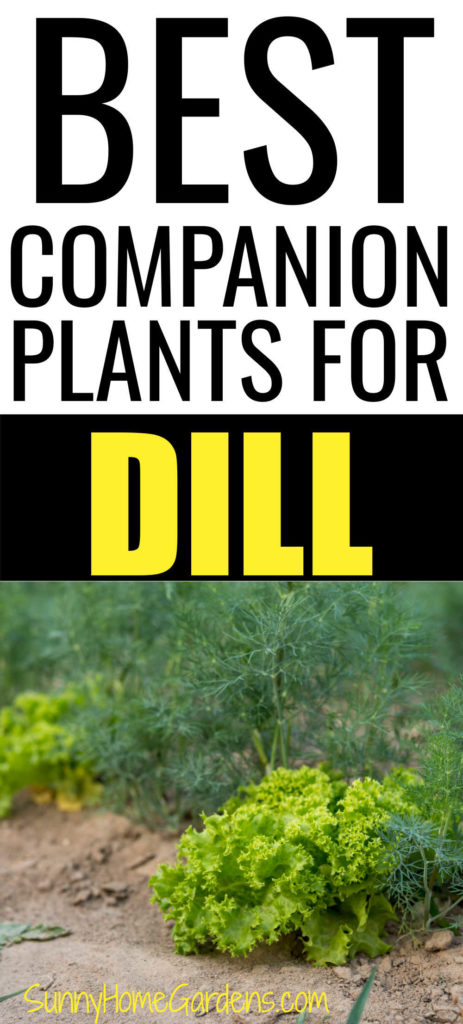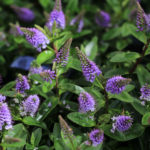Here are some of the best dill companion plants. Not only do other plants make a great companion to dill plants, but dill is excellent with many other types of plants.
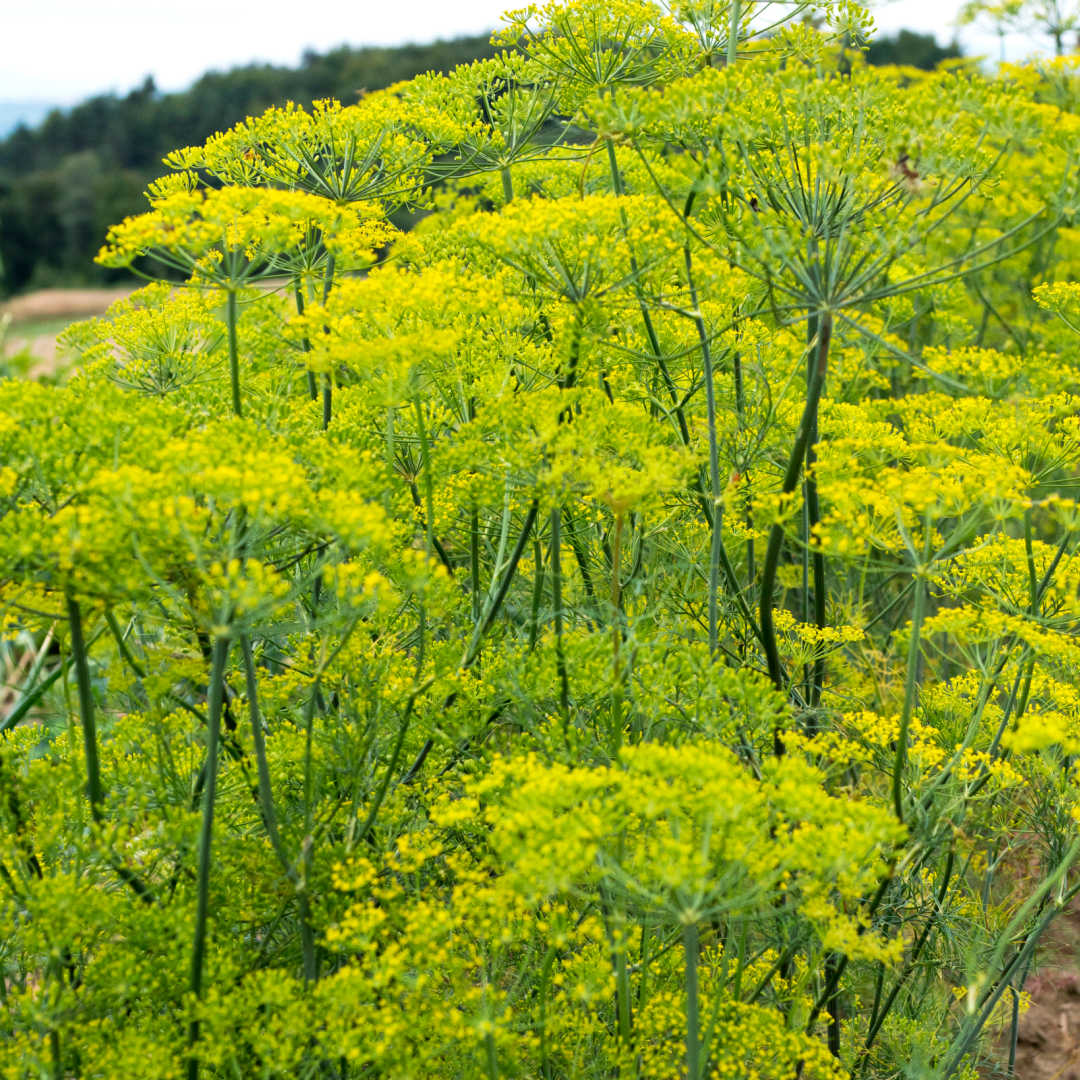
Dill is an annual aromatic herb with a savory, citrusy flavor. It’s often used to enhance the flavor of fish recipes and dips, and it’s a must-have herb for pickle-making. Dill is easy to grow in a home garden and provides benefits to nearby plants.
Companion planting is a great way to encourage beneficial insects, repel insects such as the cabbage moth or cucumber beetle or enhance flavor and increase yield.
Table of Contents
Best Dill Companion Plants
Use this list of best dill companion plants when planning your garden so the plants will help each other produce their best.
Once you try companion planting in your vegetable garden, you’ll try to do it for all your fruits and vegetables.
Asparagus
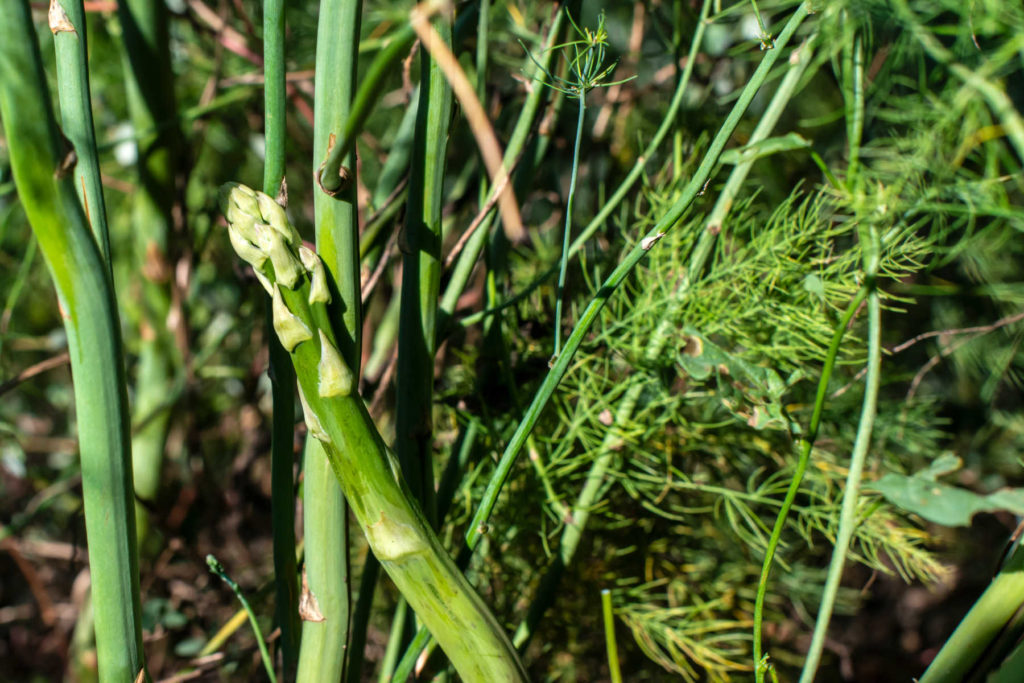
Dill plants have a shallow root system and won’t disturb the deep-growing asparagus plants. The dill also thrives under the shade provided by the asparagus fronds.
Planting asparagus and dill together allows you to grow twice as many plants within a small garden space.
Dill is irresistible to honey bees and they are the number one pollinator for asparagus plants.
Basil
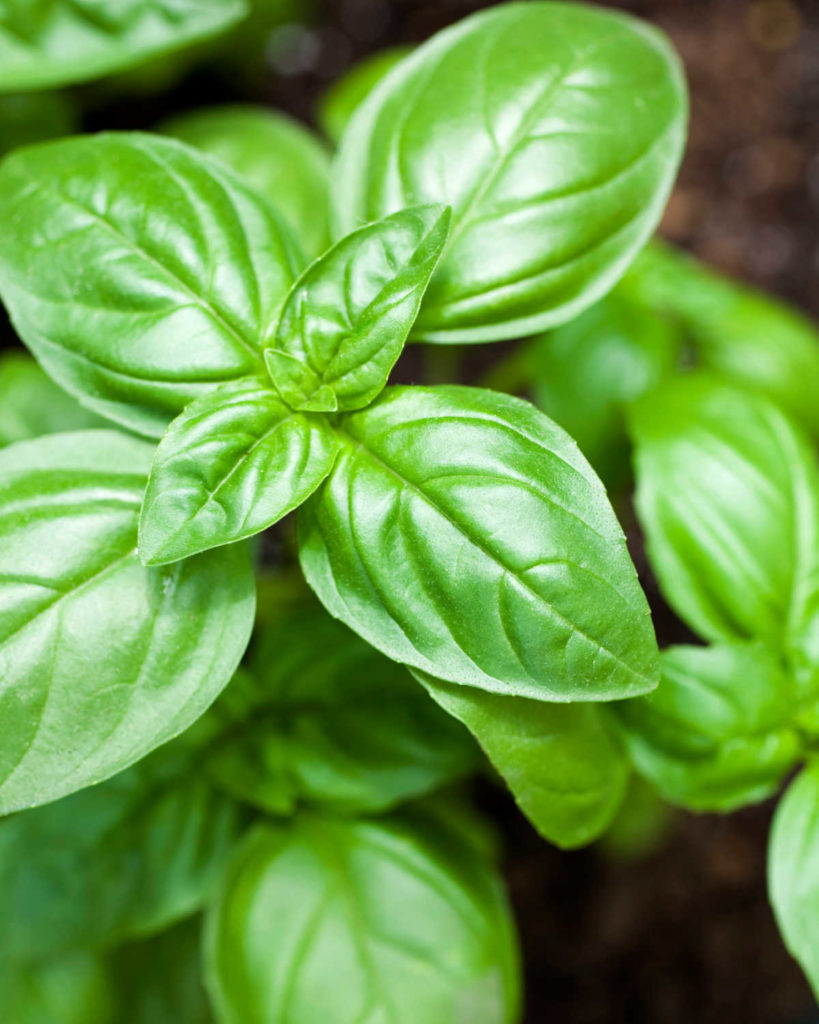
Basil forms a bushy herb plant that helps to shade the dill and keep the soil cooler.
Dill is a cool-season plant and will go to seed as soon as the soil warms up in early summer.
By planting these two companions together, the soil will remain cooler for an extra few weeks so you can enjoy an extended harvest of fresh dill.
Dill attracts predatory garden pests so they will stay away from the tender basil leaves.
Broccoli
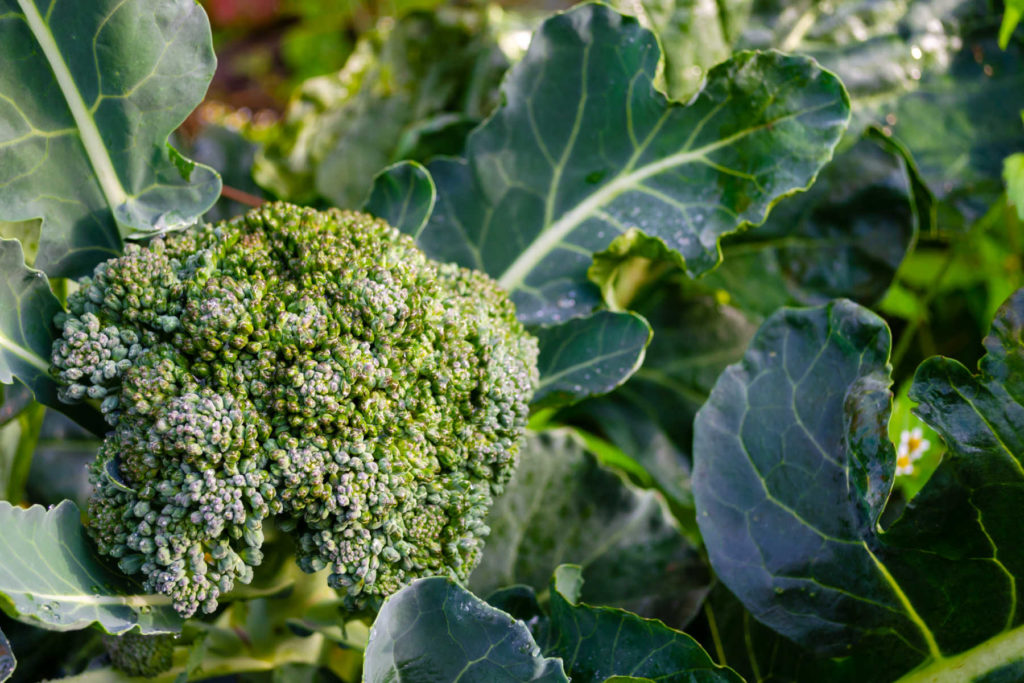
Both broccoli and dill are cool-season plants and make great companions in the garden.
They thrive in similar environments and soil conditions, and the natural oil in the dill leaves repel most of the pests that are attracted to broccoli plants.
Brussels Sprouts

The aroma of dill will lure leaf-chewing cabbage worms away from brussels sprouts. These destructive cabbage worms will mature into white cabbage moths that will destroy all vegetables within the cabbage family.
Plant dill far away from your Brussels sprouts to provide natural protection from cabbage worms and moths.
Cabbage
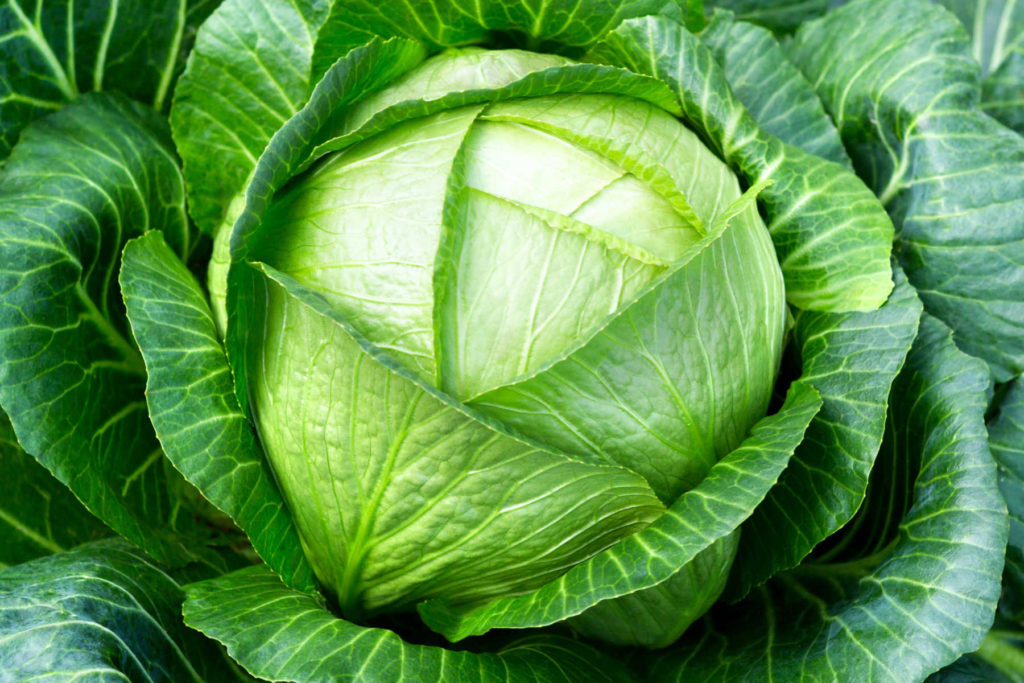
Cabbage worms and moths feed on all cruciferous plants, chewing holes in leaves and boring into cabbages and ruining entire heads. They are very common pests and most home gardeners have to contend with them.
Dill is a good companion plant that will help you win the battle against these cabbage destroying pests.
Plant dill away from cabbage so the plants will attract the cabbage worms and cabbage moths and allow the heads of cabbage to grow and reach maturity without being devoured.
Corn
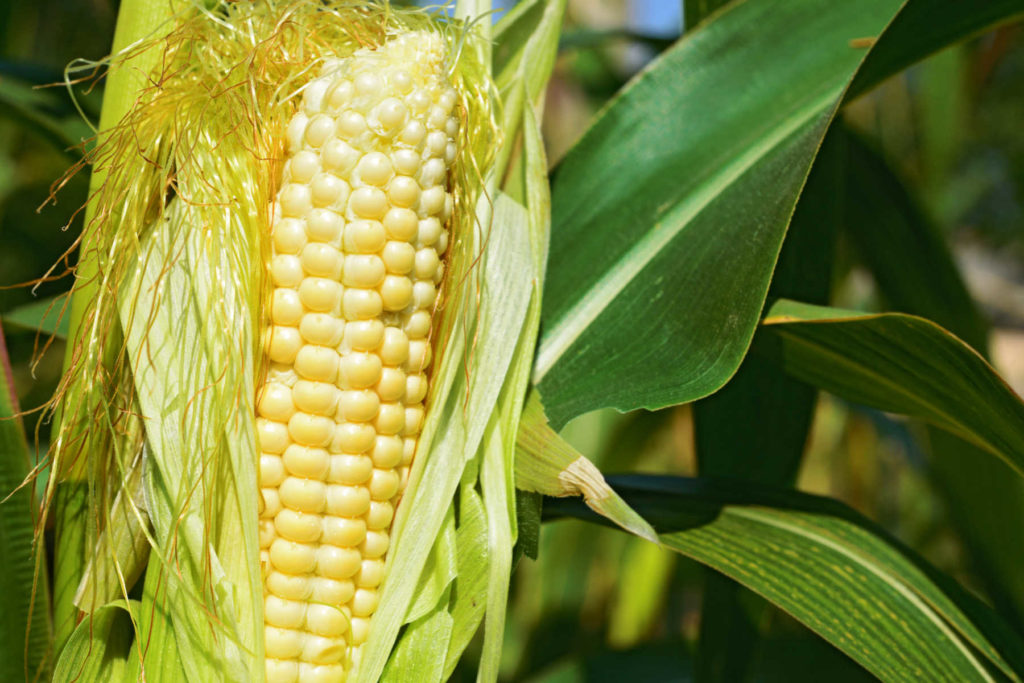
Corn has shallow roots like dill and the plants work together to help keep the soil cool and retain moisture.
Dill can be planted at the base of corn stalks and as it grows it will shade the soil for the corn and as the corn stalks grow tall, it will provide shade for the dill plants.
Dill attracts parasitic wasps which are a valuable pollinator for corn.
Cucumbers
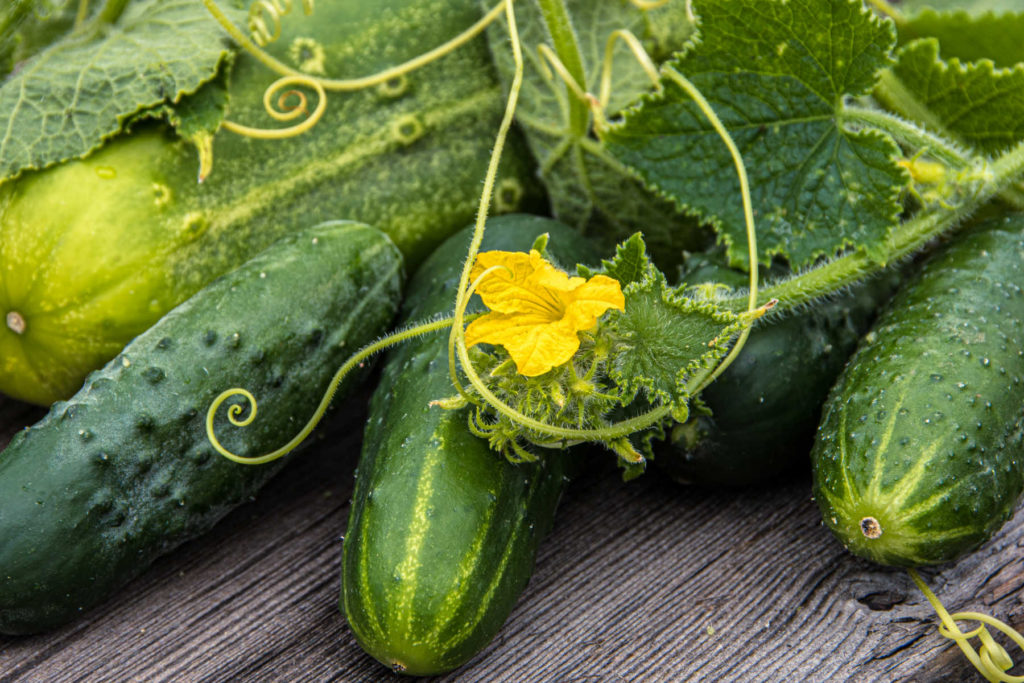
Cucumber beetles are the main destructive garden pest that attacks cucumbers. Dill attracts the beneficial pests that love to eat these destructive beetles.
Braconid wasps, nematodes, ground beetles, and soldier beetles are attracted to dill and will feast on cucumbers beetles.
Plant dill around the perimeter of cucumber plants to prevent them from being attracted by harmful beetles.
Garlic
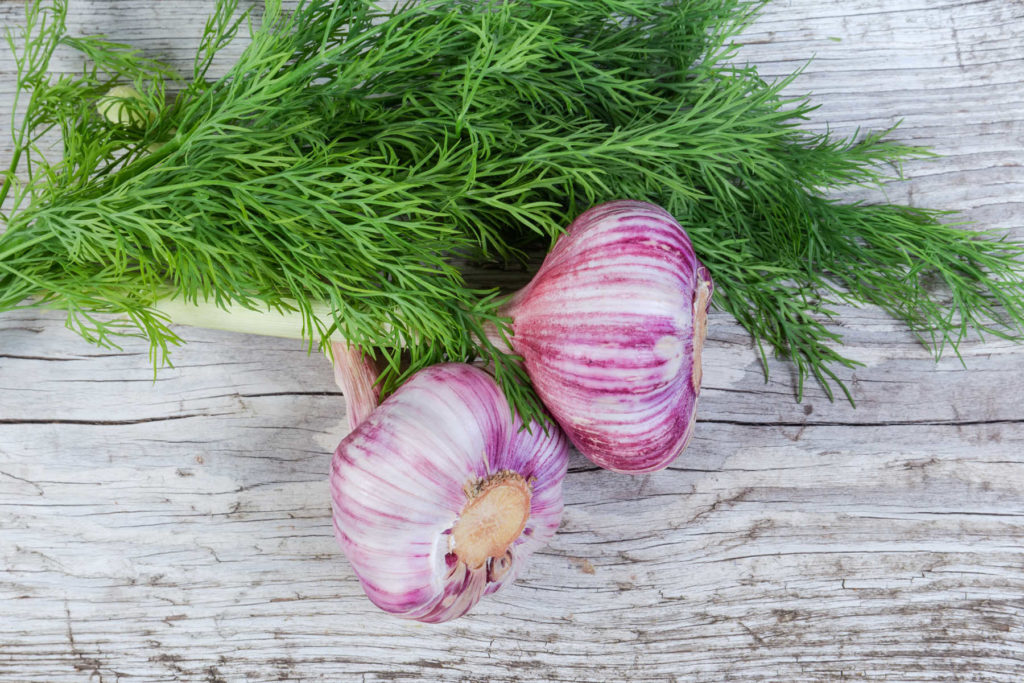
Dill has a few of its own predators, like aphids, that will congregate on the tend stems and under the fronds and suck the sap out of the plant. Planting garlic as a companion plant for dill will repel the aphids so the dill plant can reach maturity.
Leaf miners, nematodes, and thrips that often attack garlic while it’s growing in the garden are repelled by dill.
The garlic and dill provide much needed benefits to each other and should be planted close together.
Lettuce
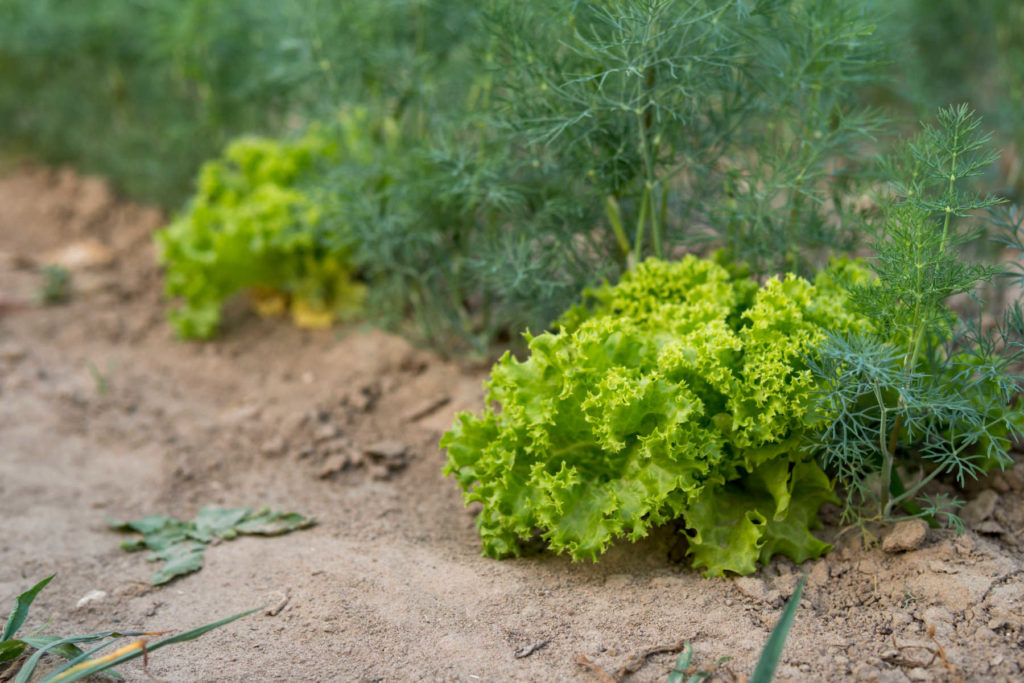
Snails and slugs will devour a lettuce patch overnight. They have voracious appetites and find it very easy to crawl up onto a low growing lettuce plant. Once they have found the tender leaves of lettuce, snails and slugs won’t stop eating until the plant is completely gone.
Planting dill around the perimeter of the lettuce bed will help keep the destructive garden pests out of your lettuce bed.
The aroma of the dill plant is typically enough to repel these crawling enemies but if they do make it past the aroma and take a nibble of the dill plant they will turn away in disgust.
Benefits of Dill in the Garden
Attracts Beneficial Bugs
Dill attracts a wide array of beneficial garden bugs that help all the plants in the garden.
Ladybugs, hoverflies, parasitic wasps, and praying mantises love the aroma of dill and are drawn to the herb plant. These bugs won’t harm the dill plant but they will feed on harmful pests like aphids.
Pollinators are also attracted to dill and will benefit all of the garden plants. Honey bees and butterflies are attracted to dill and will visit all the plants and spread pollen while they are in the garden.
Repels Harmful Garden Pests
Dill is an all-around good companion plant for all garden plants. Dill repels many harmful garden pests like bean beetles, carrot flies, and cabbage worms is an ideal plant to tuck in throughout the garden.
Dill produces fragrant oil and blooms that are filled with pollen that repel harmful pests and attracts bugs that are good for the garden.
Not Good Companions
While dill can provide a multitude of benefits for the home garden and makes a good companion plant for most vegetables, there are a few plants that dill is not a good companion for.
* Dill should not be planted near carrots. These two are in the same family and will cross pollinate with each other and result in a foul tasting hybrid. The carrots will also be stunted.
* Using dill as a companion plant for tomatoes has two sides – a good one and a bad one. Dill is an excellent repellent to deter tomato hornworms and the dill attracts pollinators. However, the dill will cause the plant to develop small tomatoes and the flavor of the tomatoes will be less than the best. The dill plant can be pruned weekly to prevent it from flowering and this will provide the good benefits to the growing tomato plants without harming the fruit.
* All varieties of peppers are in the nightshade family (like tomatoes) and should not be planted near dill. Dill will hinder the growth and change the flavor of peppers.
* Eggplant is also in the nightshade family and dill does not make a good companion for it.
* Any plant that thrives in full sun is not a good companion for dill unless the herb can be grown under it. Dill requires a little shade and cool soil for optimum growth. Dill will bolt (go to seed) as soon as the air temperature becomes too warm.
* Fragrant plants, like lavender, should not be planted next to dill. The fragrances of each plant compete and will be diminished.
Final Thoughts on Dill Companion Plants
Dill is an easy to grow herb that pairs well with most plants both in the garden and in culinary applications. Plant dill seeds directly into prepared garden soil in spring, don’t try to start plants and transplant them as the seedlings typically do not survive.
If you found this post helpful, make sure to “PIN IT“.
